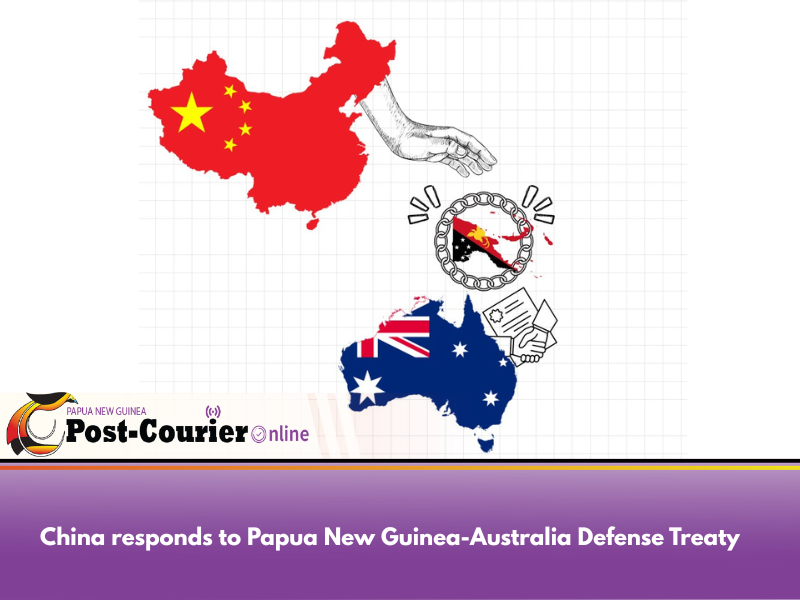By postcourieronline
Copyright postcourier

The Chinese Embassy in Papua New Guinea (PNG) and the Chinese Foreign Ministry have issued statements in response to the release of the Joint Communiqué on a Mutual Defense Treaty between PNG and Australia.
While respecting PNG’s sovereign right to enter such agreements, China’s comments highlight concerns about the treaty’s potential implications.
A spokesperson for the Chinese Embassy in PNG affirmed China’s principle of non-interference in the internal affairs of other countries. The spokesperson stated that China respects PNG’s right to enter a bilateral treaty with any country voluntarily.
However, the embassy emphasized that such an agreement should not be exclusive in nature, nor should it “restrict or prevent” a sovereign country from cooperating with a third party.
The spokesperson further advised that the treaty should not target “any third party” or undermine its “legitimate rights and interests.” The embassy expressed hope that PNG would continue to uphold its “independence and self-reliance” and work with China to maintain strong bilateral relations and mutually beneficial cooperation.
During a regular press conference in Beijing, Chinese Foreign Ministry Spokesperson Lin Jian addressed a question from Bloomberg about the new security pact. Lin Jian noted that Pacific Island Countries (PICs), including PNG, primarily face challenges related to climate change and economic development.
Lin Jian stated that China welcomes closer cooperation between PICs and other nations, highlighting China’s own efforts to assist these countries in economic growth and improving livelihoods.
He reiterated a similar point to the embassy, stating that any cooperation between PICs and another country should prioritize the “independence and development of PICs,” be “open and inclusive,” and “not target any third party.”



